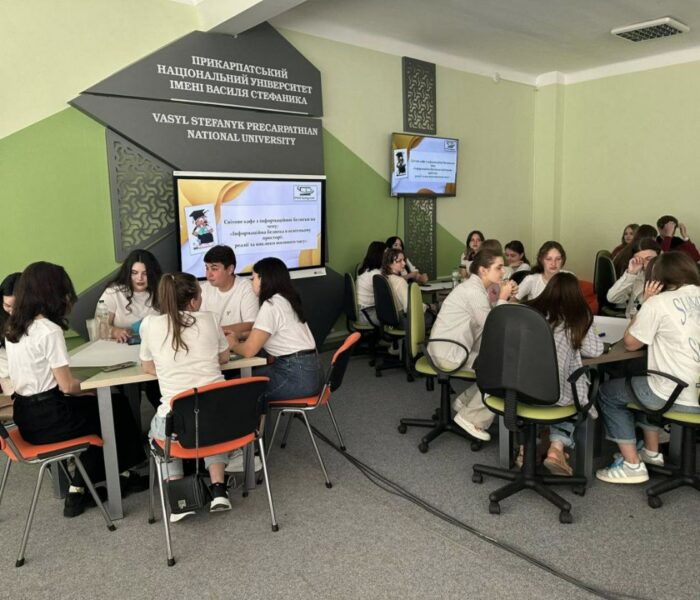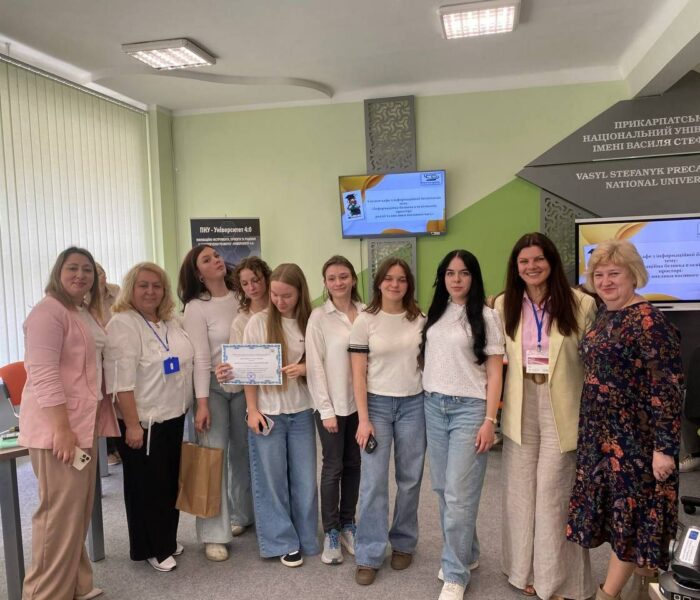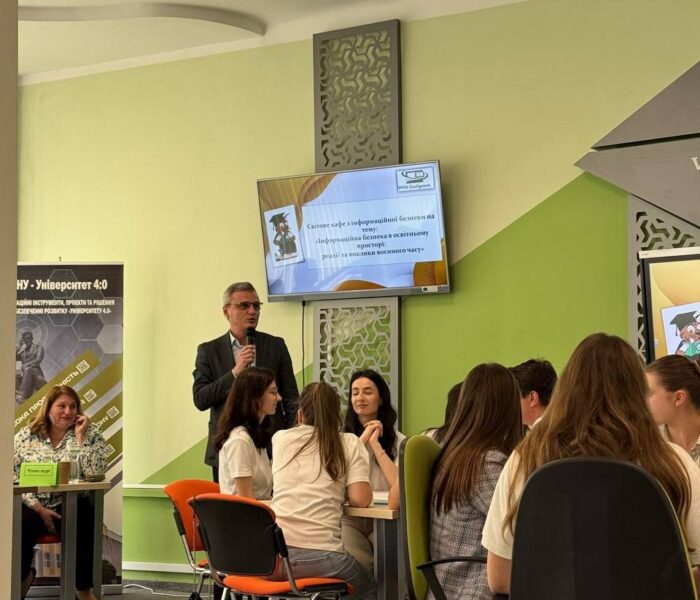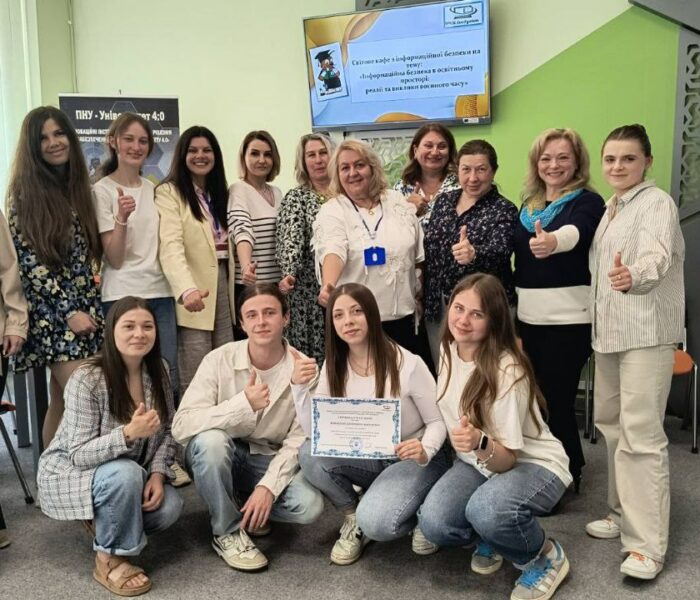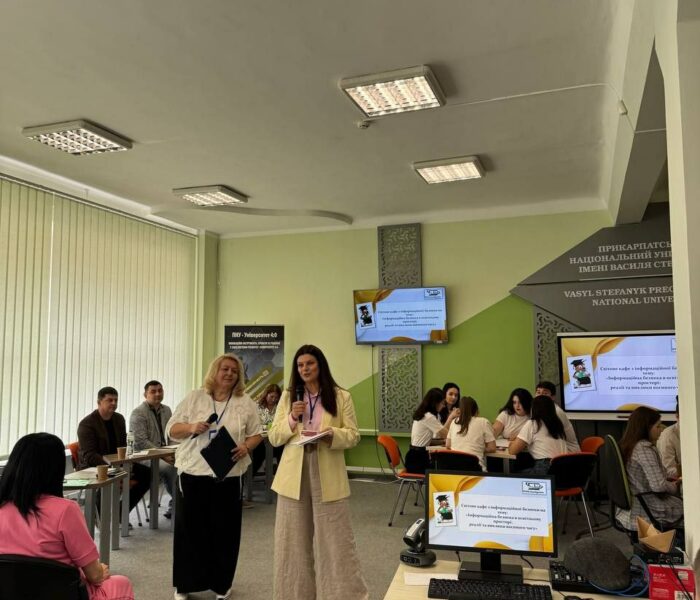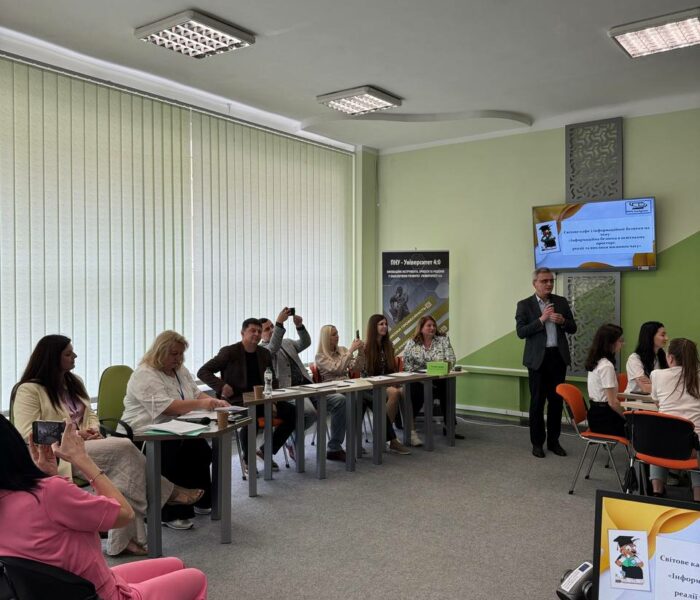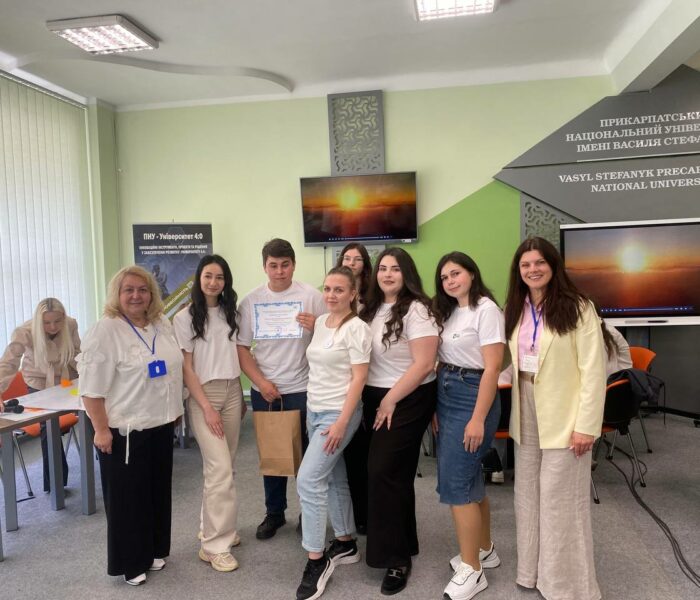On May 22, 2025, the Center for Innovative Educational Technologies PNU EcoSystem became a platform for lively discussion and critical reflection on digital safety during an interactive event in the format of a “world cafe” on the topic: “Information Safety in the Educational Space: Realities and Challenges of Wartime”.
The event was moderated by:
▪️ Inna Chervinska, Doctor of Pedagogical Sciences, Professor of the Department of Primary Education and Educational Innovations
▪️ Kateryna Fomin, PhD in Pedagogy, Associate Professor at the Department of English Philology.
Professor Serhii Sharyn, Vice-Rector for Scientific and Pedagogical Work, welcomed the event and emphasized the importance of innovative formats in forming students’ digital competencies. The event brought together student teams from the Faculty of Pedagogy, the Faculty of Natural Sciences, the Faculty of Foreign Languages, as well as students from the Catholic Lyceum of St. Basil the Great. Organized in the format of a “World Café,” the participants engaged in collaborative work within thematic groups, addressing critical topics such as phishing, deepfakes, information hygiene, social media security, and methods of hostile propaganda. The open-discussion format fostered active participation, encouraging attendees to ask questions, share perspectives, and contribute their insights. Each team presented its assigned topic, transforming the event into a dynamic and thought-provoking exploration of the pressing challenges of the digital era.The work of the participating teams was assessed by a highly qualified jury comprising Professors Oleksandr Soletsky and Liliana Khimchuk, as well as Associate Professors Maryna Vasylyk, Andriy Chervinsky, and Lesia Khrushch. The expert panel not only identified the most effective presentations but also played a pivotal role in steering the discussions toward a constructive and analytical examination of real-world threats and practical strategies for addressing them.
During the concluding remarks, the event was addressed by Oksana Kondur, Dean of the Faculty of Education; Natalia Yatskiv, Dean of the Faculty of Foreign Languages; Tetiana Mykytyn, Deputy Dean of the Faculty of Natural Sciences; and Maria Ilyuk, a teacher at the Catholic Lyceum. The speakers underscored the critical importance of the event’s theme, highlighting the value of interdisciplinary collaboration and the urgent need to foster media literacy and digital awareness amid the ongoing information warfare. Dean Natalia Yatskiv particularly emphasized that digital literacy is no longer solely a professional competency, but a vital element of civic responsibility and a key life strategy for today’s youth.
The event clearly demonstrated that it is the younger generation—equipped with knowledge, critical thinking, and digital competencies—that is best positioned to effectively address and counteract information threats. Sincere appreciation is extended to all participants, moderators, members of the jury, and organizers for their valuable contributions and active engagement in the initiative.

